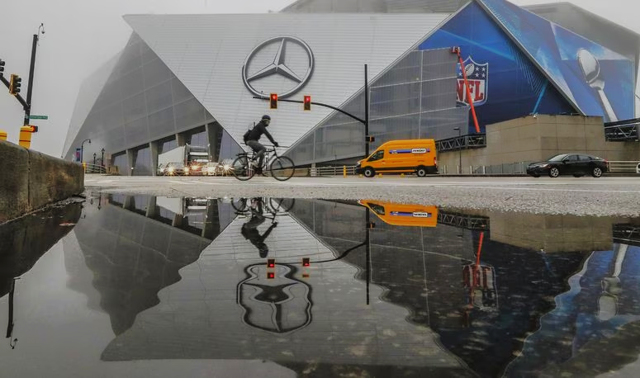
St. Louis American staff |

Female employees, Black consumers faced discrimination
In March 2022, the St. Louis American profiled a new car owner taking part in a pilot program that saved her from an outrageous interest rate for a loan. Unfortunately, many Black consumers are not as lucky as Katherine Faulkner.
She found an interest rate she could afford through a pilot program established by Justine PETERSEN and the NISA Charitable Fund. She learned that many prospective minority car buyers are saddled with higher interest rates and tag-on fees that white consumers avoid.
Recently, Tri-Star Imports, the owner of Mercedes-Benz of Saint Louis was ordered to pay $1.8 million to two former women employees who alleged the dealership discriminated against Black customers, regardless of credit worthiness or their wealth status.
Tri-Star is not alone, as reported by the American last year.
In 2017, Toyota’s auto-loan division agreed to pay $21.9 million in restitution to thousands of Black, Pacific Islander, and Asian customers after the government alleged that they were charged higher interest rates than white borrowers. Federal agencies said from 2011 to 2016, borrowers of color regularly paid Toyota between $100 and $200 more per month due to higher interest rates than white borrowers.
In 2015, Honda Motor Corporation’s American financing agreed to refund $24 million to borrowers to settle federal investigations alleging it discriminated against minorities by charging them higher interest rates on auto loans than white customers.
In 2013, Ally Financial Inc. agreed to pay $98 million to settle federal allegations of discriminatory auto pricing.
Dorothy Robinson and Denise Ligon worked at the Mercedes-Benz dealership for more than three years at 1048 Hampton Ave.
What they witnessed and experienced led them to sue the dealership’s owner, Tristar Imports, for discrimination, harassment, and retaliation.
In November 2022, a jury ruled in their favor.
“When I had an African American client, it was more difficult to get the deal approved,” Robinson told Christine Byers and Greg Miller of KSDK
“I witnessed that they treated Black customers differently,” Ligon said.
The lawsuit alleged that they, along with their female and Black co-workers, were treated more harshly.
According to the KSDK report, Ligon said she had dozens of glass awards that lined a shelf in her office and one of her managers banged on the glass to her office so hard some awards fell and cracked.
Her attorney, Mary Anne Sedey, used the broken awards to demonstrate the discriminatory treatment during the two-week trial that took place in the fall of 2022.
KSDK obtained depositions from the women.
“There were a number of practices that they observed where Black customers were just treated differently than white customers,” Sedey said.
“For instance, a Black customer would want to write a personal check for a deposit and take the car, and they would say, ‘No.’ this was “routinely” done for white customers.
There were allegations that Black customers were racially profiled. A manager would go online, see a Black prospective car buyer’s address, and say “Oh, he can’t afford that car,’ based on where he lived and the fact that he was Black.”
During the trial, Sedey said several of her clients explained how Black consumers would be quoted higher interest rates during what’s known as “penciling a deal.”
“There would be the assumption that Black customers were going to have to pay a higher interest rate because their credit wouldn’t be any good,” Sedey said. “So, there were a number of different ways in which Black people were just simply treated differently as customers.
“And these are people who are buying Mercedes Benz cars. So, to assume that people who had come to a dealership to buy a Mercedes Benz automobile were not people of means, that’s a classic stereotype.”
“It’s so much bigger than what people know,” Robinson added.
Tristar and the dealership did not respond to KSDK request interviews and denied the allegations during the civil trial.
In November 2020, the American profiled Rich Miller, a former Lincoln Mercury Ford dealer who published the book Dealing: The Incredible Journey of an African American Car Dealer
According to Miller, Black people in the United States spend more than $50 billion on new cars every year. He said African Americans spend more money on cars than houses yet face discriminatory practices in buying vehicles – and in attempts to own car dealerships.
Miller recommends boycotting selected manufacturers, picketing select dealerships, organizing labor strikes, and purchasing stock in publicly traded car companies to filibuster their shareholder meetings and/or to vote to have racist policies removed and replace members of their board.
They have an incentive to, unfortunately, charge people as much as they can,” said John Van Alst, an attorney with the National Consumer Law Center (NCLC) told KSDK.
His group has researched discriminatory car lending practices for nearly 20 years.
“There really isn’t any transparency, and people don’t know what’s happening,” he said.
“It’s hard for a consumer to even know if they were discriminated against. You can’t tell after you walk out of the dealership.”
An NCLS report concluded that auto financing companies often charge Black and Hispanic consumers between $300 and $500 more in interest rate markups compared to similarly qualifying white borrowers. It recommends financing a car loan through a bank or credit union where rates can be lower.

